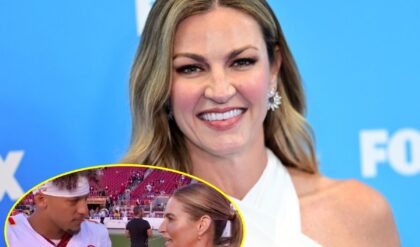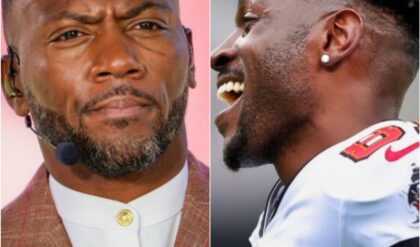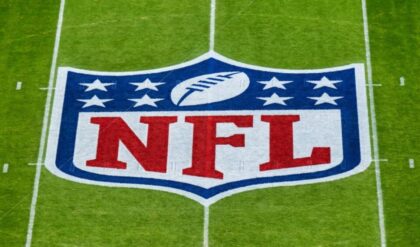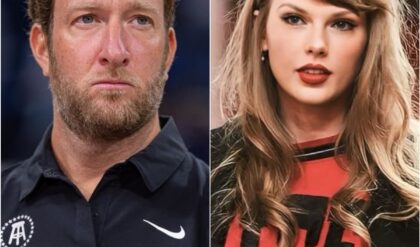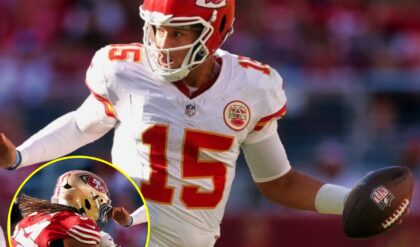‘Kobe Bryant Once Almost Joined Pistons,’ Reveals NBA Insider
 Kobe Bryant (Photo by Jed Jacobsohn/Getty Images)
Kobe Bryant (Photo by Jed Jacobsohn/Getty Images)
Kobe Bryant spent his whole 20-year NBA career with the Los Angeles Lakers. Despite his untimely demise, the epitome of relentless pursuit of greatness left the NBA world many glorious nights to look back on. But what if he left the Gold and Purple brigade to join a rival? That never happened but could’ve happened, according to Adrian Wojnarowski.
Appearing on Barstool Sports’ “Pardon My Take” podcast, the NBA insider detailed the nixed trade between the Lakers and the Pistons which would’ve sent Kobe to Detroit. “That trade was agreed to, like the two teams with the terms, but then Kobe just said ah I don’t want to do this,” said Woj about the trade scenario.
Dialing the clock back a bit might help understand the scenario in 2007 when there were talks about Kobe wanting to leave the Lakers. A frustrated Black Mamba wanted to leave LA after three back-to-back seasons of failure. So, the trade with the Pistons was agreed upon, which would’ve sent the then-3-time NBA champion to Detroit in return for Tayshaun Prince, Richard Hamilton, and draft picks. But at the last moment, Bryant told Jerry Buss he wouldn’t be moving. And then the rest is history.
But what could’ve stopped him from joining the Pistons? The 2004 NBA Finals could be the answer.
Kobe Bryant Was Upset Over Losing to Pistons
In the 2004 NBA Finals, the Lakers faced the Pistons. The Motor City team crushed Kobe Bryant and his side in five games to clinch the championship. Kobe Bryant did not believe in the “if you can’t beat them, join them” motto, which could be a major factor in his rejection.
The other factor was his rivalry with his high school friend Rip Hamilton. Hamilton dropped 26 points in game 2 of the series and 31 in the next one and was a massive cog in the Pistons system. Later on, Kobe revealed, “It still eats at me. It absolutely does, and I’m upset that I gave Richard Hamilton something to brag about, because up until that point, he never beat me. And that just kills me.”
Even though Hamilton would’ve landed on the West Coast, Kobe had enough of his high school friends to be involved in a trade. If Kobe ultimately decided to join the Pistons, it could’ve been another dynasty for the Detroit franchise after their “Bad Boys” era of the late 1980s and early 1990s.
“We Got Mike Conley Back”- Anthony Edwards Credits Conley’s Return for Game 6 Win Against Nuggets
 Anthony Edwards, Mike Conley (Image source Getty Images)
Anthony Edwards, Mike Conley (Image source Getty Images)
After losing game 5 to the Denver Nuggets, the Minnesota Timberwolves were on the brink of elimination from the conference semifinals series. However, they bounced back in game 6, taking the Playoffs to the final game 7.
In game 6, the Timberwolves secured a resounding victory against Denver with a score of 115-70. After the win, Timberwolves star player Anthony Edwards was asked about the strategy behind the win during a post-game interview. In response, Edwards credited Mike Conley’s return for making the victory possible.
Reporter: What do you think led to the response that you guys had tonight?
“Shit, we got Mike Conley back. That was it,” Anthony said in response to the reporter’s question about what led to the team’s strong performance tonight.
Anthony Edwards and Coach Finch Shower Praise on Conley
In addition to Edwards’s remark, Coach Chris Finch praised Conley for his stunning performance.
“Mike means everything to us, he is unbelievable next to Anthony in terms of being able to set him up, play off of him, and be in his ear all of the time.” Smart defender. Finch said.
In game 6, Conley played for 31 minutes, scored 13 points, grabbed 4 rebounds, and made 5 assists. According to Sportradar, Minnesota achieved its largest winning score difference in a postseason game since 2015, when the Bulls defeated the Bucks by 54 points in the first round of the playoffs. During Game 4, Conley injured himself after missing a 3-point jumper.
Conley was considered questionable throughout the day due to a strained right Achilles tendon, which kept him out of Game 5. The Wolves further described the condition as a soleus strain. The soleus muscle of the calf connects the Achilles tendon to the heel bone.
